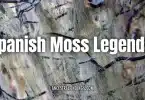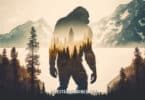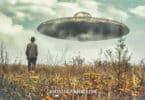The largest American state, and the next to youngest state in the union, Alaska has a long history as a home for Inuit Native Americans and European hunters, trappers, and oil pipeline workers. Over the centuries, it has accumulated some interesting folklore all its own, both from the native Inuits and from the European settlers who came to call it home. With so much wilderness in Alaska, much of it still unexplored, there is mystery in the state. The sense of mysteriousness about it is compounded by the close proximity to the Arctic Circle and the presence of the Northern Lights.
Here are some of the wildest, weirdest, and most interesting bits of Alaskan folklore.
Legends of the Northern Lights
There are various Alaskan folklore stories about the origin and purpose of the Northern Lights. Some of the most intriguing include:
Ball playing — The Inuits believed the Northern Lights were the spirits of their dead ancestors playing ball with a walrus skull. Alternately, the people of Nunivak Island believed the lights were the spirits of walruses playing ball with a human skull.
Guiding spirits — Some Inuit tribes believed the lights were spirits carrying torches to help them find lost souls who needed help in crossing over to the paradise on the other side.
The spirits of animals — Some Alaskan tribes believed the lights were the spirits of the animals they hunted and killed for food and clothing, playing free in the sky.
The Alaska Triangle
Of course, not all Alaskan folklore has to do with the Northern Lights. One of the creepiest is the tale of the Alaska Triangle, which is similar to that of the Bermuda Triangle, only farther north. Because Alaska is so huge, with more unsettled wilderness than any other part of the United States, it also has the highest number of missing persons, and some of those people seem to simply vanish off the face of the earth. Interestingly, a majority of the disappearances have happened in an area of Alaska locals have come to call the Alaska Triangle.
If you triangulate the towns of Juneau and Anchorage with the Barrow Mountain range, you get the area of the Alaska Triangle. Over the decades, thousands of people have disappeared here, traveling on foot, in cars, in airplanes, and any other mode of travel you could imagine.
The most famous Alaska Triangle disappearance was in October of 1972, when two US Congressmen, their aid, and their pilot disappeared in the Triangle while flying over it in a Cessna 310 airplane. Even after a thirty-nine-day hunt involving thousands of people and the military, no trace of them or the plane (or any wreckage that could be the plane) was ever found.
UFOs and the Alaska Triangle
It’s not just disappearances that happen in the Alaska Triangle. In 1986, a Japanese airliner going from Iceland to Anchorage reported being followed for more than four hundred miles by three UFOs across the empty Alaskan wilderness, including part of the area of the Alaska Triangle.
The pilots of the airplane said there was a large UFO about the size of two aircraft carriers, with two smaller “scout” vessels following it. They asked for and obtained permission to perform evasive maneuvers, but the UFOs continued following them until they reached Fairbanks, then flew away. No one knows what the UFOs were or why they were following the plane.
The Saberwolf of Alaska
Saber-toothed tigers may have once roamed North America, but according to local Inuit tribes in Alaska, a saberwolf may still live there. Legends going back generations tell of a wolf-like spirit that is evil and bites the heads off of people in what is known as Headless Valley. While the valley is in Canada, there have been modern sightings of the wolf in Alaska, including by an American mechanic, and by the crew of the TV show Alaska Monsters. Cryptozoologists speculate the saberwolf might be an archaic species of the dire wolf or even a “bear dog” creature that was thought to have gone extinct in the Eocene era. As no one has captured one, no one knows.
Nessie: Alaskan-Style
You thought Scotland had the market cornered on mysterious lake monsters? Not so. Alaska has one of its very own, as well. At Lake Iliamna, there is supposedly a giant fish that has been menacing people since the Ice Age, and maybe before that. Aleut and Tlingit tribes both have versions of the legend of the lake monster, which goes after people swimming or in boats on the lake’s surface. There have also been a few modern sightings of it, which give the tale more credence.
The monster is usually called Jiginak, which is the Aleut name for it. In 1967, a pilot thought he saw the Jiginak while flying over the lake. To try to capture it, he sent up a float plane with tuna hooks baited with caribou meat. Something below the lake’s surface bit the hooks and pulled the plane around the lake for a while. When the pilot recovered the plane, he found the caribou meat was gone and the tuna hooks were straightened out.
A Russian Haunting
Before Alaska was an American territory or state, it was a Russian colony in North America. The Russians built lodgings there, including castles. One Russian castle, Baranof Castle in Sitka, Alaska, has been the sight of hauntings even before the official handover of Alaska from Russian to American control happened there in 1867.
There had long been sightings of a ghostly, mournful lady in dark clothing at the castle, and they were a local legend by the time the Americans took control of Alaska. The ghost was said to be that of a Russian woman who committed suicide there on her wedding night, after being forced to marry a man she did not love.
The castle is today called Castle Hill and is popular with tourists. Some still report sightings of the ghostly Russian lady. She is also said to sometimes haunt the nearby Russian Bishop’s House in Sitka, too.






